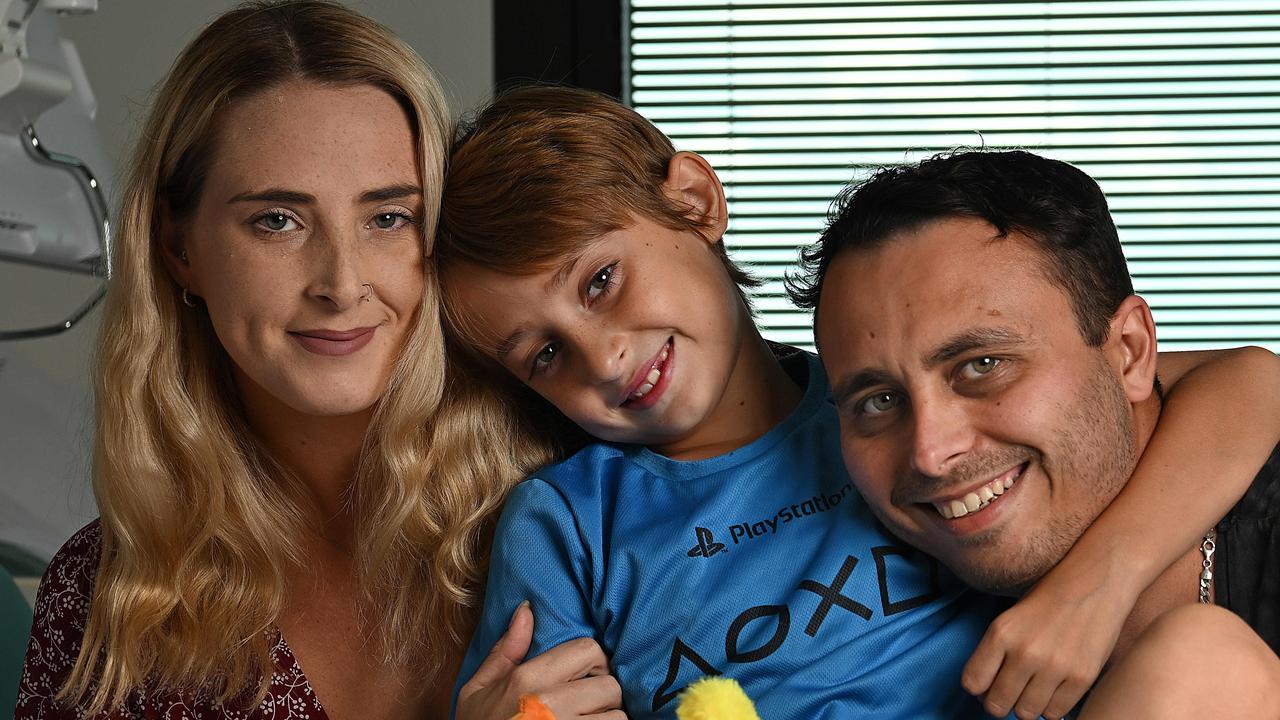How COVID changed the dining landscape
When COVID restrictions hit, Brisbane’s best restaurants transformed. Here are the trends that marked 2020.
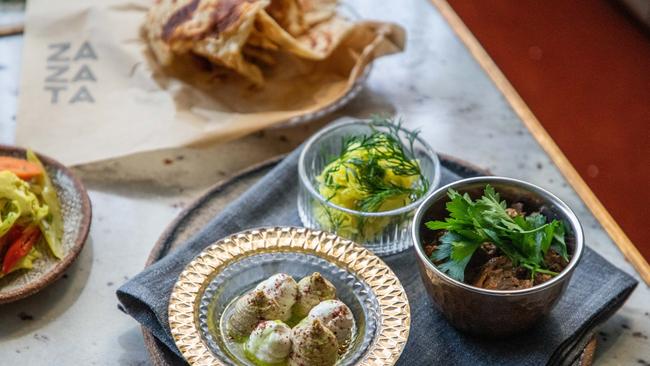
News
Don't miss out on the headlines from News. Followed categories will be added to My News.
Recalibrating, rethinking, pivoting. Running a hospitality business in 2020 has been all about rapid-fire adjustment.
When shutdown suddenly hit in March, owners began the urgent hunt for new revenue streams.
DON'T MISS: QLD’S TOP 50 CAFES REVEALED – online at couriermail.com.au 2pm Friday
A chef who was about to open an up-market wood-fired restaurant suddenly found himself slaving as a baker from dusk until dawn; a CBD eatery with a degustation menu focus turned to making takeaway Italian comfort food; and an event-free, cavernous riverfront function room at Howard Smith Wharves became a German-inspired beer hall serving Asian food.
Out of a year of extreme challenges emerged several defining hospitality trends:
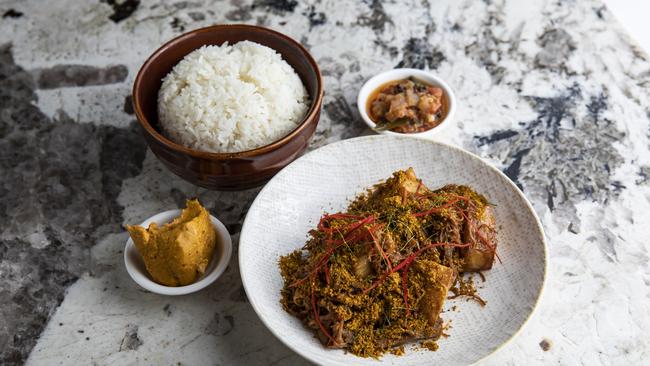
RISE OF GOURMET TAKEAWAY
Delivery and takeaway has grown from 8 per cent of the market pre-lockdown to 30 per cent now, according to Restaurant & Catering Australia CEO Wes Lambert.
“Pre-COVID there were four million downloads of delivery apps; now there are nearly nine million,” he says.
“In a very, very short amount of time, everything changed. COVID has made consumers want to get their food delivered so it’s not going to go back to the way it was.”
Curry, the ultimate in transportable food, became a COVID strategy for Cameron and Jordan Votan, the owners of bustling Fortitude Valley Chinese restaurant Happy Boy and bar and small plates enterprise Snack Man, as well as CBD French bistro Greenglass.
They dubbed their new business Kid Curry, which when restrictions eased, also operated out of Snack Man.
“In lockdown our orders were five or six times what you would expect normally,” Cameron Votan says.
The curry concept worked so well the brothers have invested in a third adjoining shopfront in East Street, to give Kid a permanent home from early next year.
While the in-house dining will be the heart of the operation, takeaway will remain.
“People want to eat our food but they can’t always be dining out all the time,” Votan says.
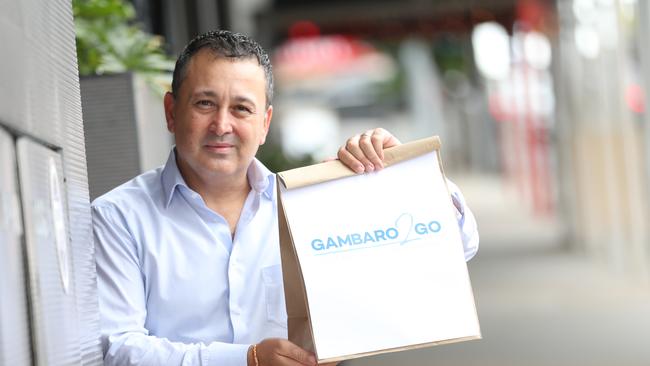
The Gambaro Group quickly had Gambaro 2 Go running at its Caxton Street HQ, with chefs from across the business, the two Black Hides, Persone and the Seafood Restaurant popping expertly cooked linguine marinara and barbecue short ribs into takeaway containers.
While some restaurants have reverted to in-house dining only, the Gambaro Group is among those keeping takeaway and home delivery as part of its business model.
“It’s restaurant quality for takeaway prices,” director John Gambaro says.
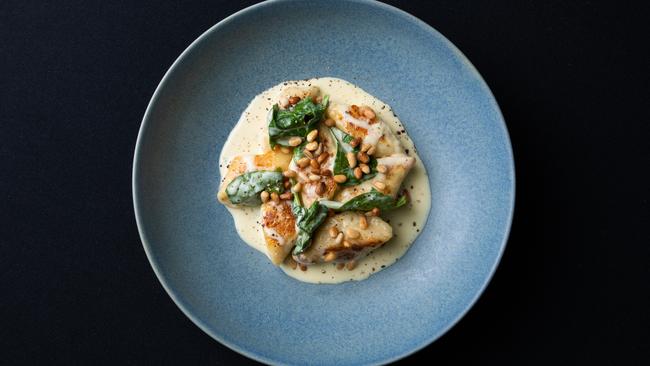
One of Brisbane’s most celebrated chefs, Philip Johnston at e’cco bistro at Newstead, is also still offering the likes of slow-roasted lamb shoulder, gorgonzola gnocchi or roasted spatchcock for pick-up and delivery.
SET MENUS TAKE OFF
During lockdown, James Street Middle Eastern hot spot Gerard’s Bistro offered its takeaway as a set menu, and liked the idea so much it kept doing it for in-house diners when restrictions eased. Head chef Adam Wolfers’ daily-changing $65 set menu includes one of his signature irresistible breads – say a wood-fired pumpkin pita with ras el hanout tahini, perhaps beef cheek shawarma and sides, followed by possibly Turkish chocolate ice cream with tahini and malt. “A lot of our diners have really taken it as a new and exciting way of dining … it leaves the decision-making up to us, and allows them to try dishes they might have otherwise not chosen,” says Wolfers, who has no plans to revert to a la carte.
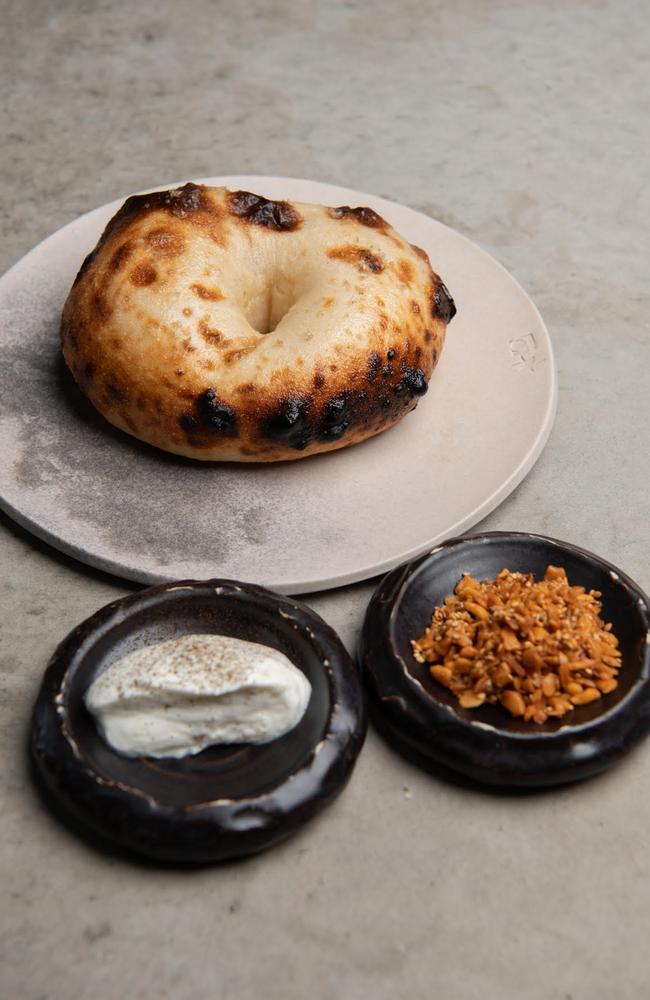
At Labart at Burleigh Heads, Alex and Karla Munoz Labart last year moved to a set menu only on Friday and Saturday nights, as they found most diners were there for a special experience and were choosing it anyway.
“When we reopened after lockdown we made the decision to move to set menu-only for all services,” Karla Munoz Labart says. “Government restrictions reduced our seating capacity from 60 people to 30 people, so the spend per head becomes a crucial factor. If someone were to book a table for two and share only one or two a la carte plates between them, we would end up losing money on that table. Operating with a set menu also means we can control food wastage as we know exactly what each guest will be eating.”
They also joined the trend to upfront payment ($90pp lunch, $125pp dinner for a lengthy array of dishes, including perhaps Mooloolaba scallops with kumquat), which has also become more common. “With half the number of seats due to current restrictions, the financial impact of ‘no shows’ would be devastating,” Labart says.
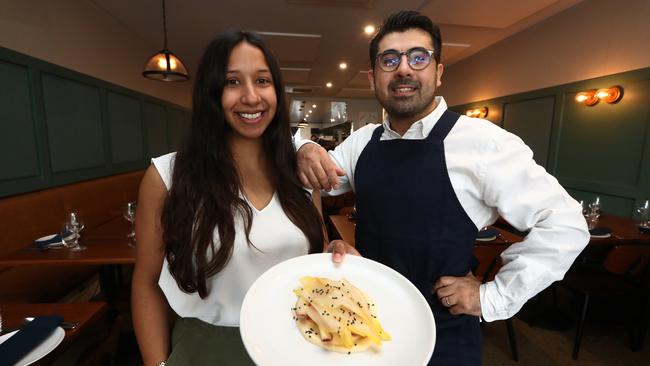
ITALIAN BOOMS
It’s amore for new Italian restaurants, with the cuisine emerging as a COVID start-up favourite. Three Stokehouse Q staff, including chef Ollie Hansford, who lost their jobs when the restaurant closed after an extended lockdown, have just opened Siffredi’s Spaghetti Bar at Teneriffe. It’s a short but innovative menu, with five spaghettis that might be topped with champagne lobster, pumpkin seed pesto and stuffed zucchini flower, or perhaps braised beef tongue with shiitake mushroom and pickled radish. Campari soft serve beckons for dessert.
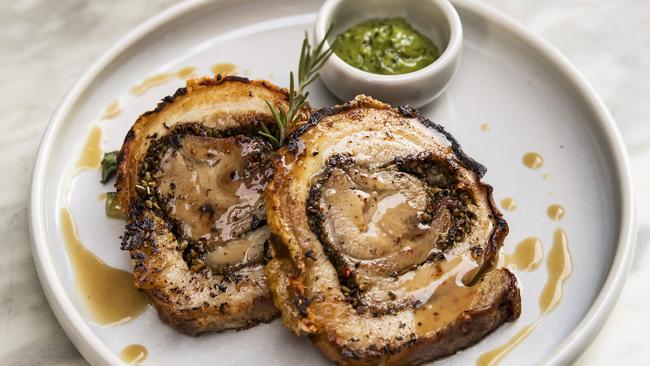
Eterna, an elegant restaurant dedicated to Roman cuisine, was opened in the Valley recently by the Salt Meats Cheese gastronomy group, mixing live jazz, a whopper wine list and late-night hours to lure guests. Shortly after, Uh-Oh Spaghetti-O followed suit nearby, adding dishes such as Peroni mac and cheese and Bolognese chips to more standard Italian fare.
Gnocchi Gnocchi Brothers, which debuted in Paddington in 2016, has continued to expand, and is now on James Street at New Farm. Voglia recently opened with a menu including pizza and pasta and a 70 per cent Italian wine list at West End. In nearby Fish Lane, Julius Pizza offshoot Bar Brutus is mixing spritzes and negronis and plating Italian snacks, while at Eagle Street Pier, Coppa will open in January.
MEXICAN WAVES
Mexican cuisine has also been rolling into town in a big way.
A pivot by the Coats Group saw Maya open in place of rooftop bar Eleven mid-year as a six-month pop-up.
But such has been the success of the cactus-dotted haven – with its breezy menu of tacos, short ribs with chipotle and mezcal glaze and zinging drinks list – that bookings are now being taken until March.
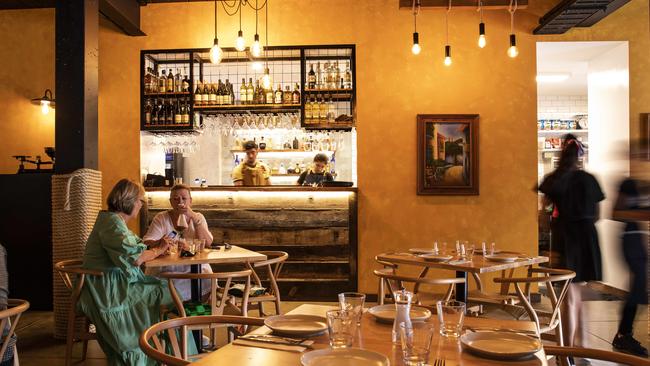
Not far away in Teneriffe, La Patrona threw open its doors a few months ago, run by Rebeca Flores and chef Ariel Becerra, who are both from the Bajio region in central Mexico, with traditional enchiladas, moles, soups and multiple varieties of taco on the menu.
Over in South Brisbane’s Hope Street, vegan El Planta opened with a clipped, plant-based menu, where taco fillings might include a take on fried chicken via 11 herbs-and-spices-fried jackfruit with pickled jalapeno and green cabbage slaw, salsa verde, pickled onion and coriander. Nearby, Mama Taco has taken up lodging in West End’s historic Rialto Theatre. Fresh-pressed tortillas and sourdough burritos are produced daily, and taco fillings could be based around caramelised miso eggplant, king prawns, charcoal beef or smoked and caramelised sweet pepper. There are also larger dishes and a drinks list starring tequila and mezcal.
The invasion continues with the Rockpool Dining Group just opening its third Brisbane El Camino Cantina, in a two-storey premises at South Bank. It’s bright and bold, with frozen margaritas and specials including $2 Taco Tuesdays. And Comuna Cantina, which has been keeping the inner-north in Mexican courtesy of its Everton Park digs, opened in Creek Street in the CBD last week.
THE TOTAL PIVOT
Alchemy in Brisbane’s CBD – an up-market restaurant with a penchant for degustations – in lockdown turned to offering takeaway Italian.
Now it’s $67 for two courses and $87 for three, with the likes of four-cheese gnocchi or maybe marinated spiced quail with fig and grapes.
“Pre-COVID it was all foams and French-style cooking,” says Angelica Jolly, who has family in Italy and owns Alchemy with chef husband Brad. “But afterwards we stuck with the Italian concept. People are loving it.”
Howard Smith Wharves – with use of its plethora of function spaces dramatically reduced due to restrictions – reworked a former event space into Felons Barrel Hall. This cross-cultural pollination involves a cavernous traditional Bavarian-style beer palace, with wooden group tables and bench seating, a brace of ping-pong tables, a children’s play area and live music.
Central to all this of course is the beer – lashings of Felons brews dispensed from a massive central bar with giant tanks feeding into 80 taps, other brews ageing in oak barrels – and chef Ralph So’s food, which runs from yellowfin tuna sashimi with red nahm jim and blood orange, marinated skirt steak with roasted chilli and tamarind in lettuce wraps, to more-ish Moreton Bay bug loaded fries.
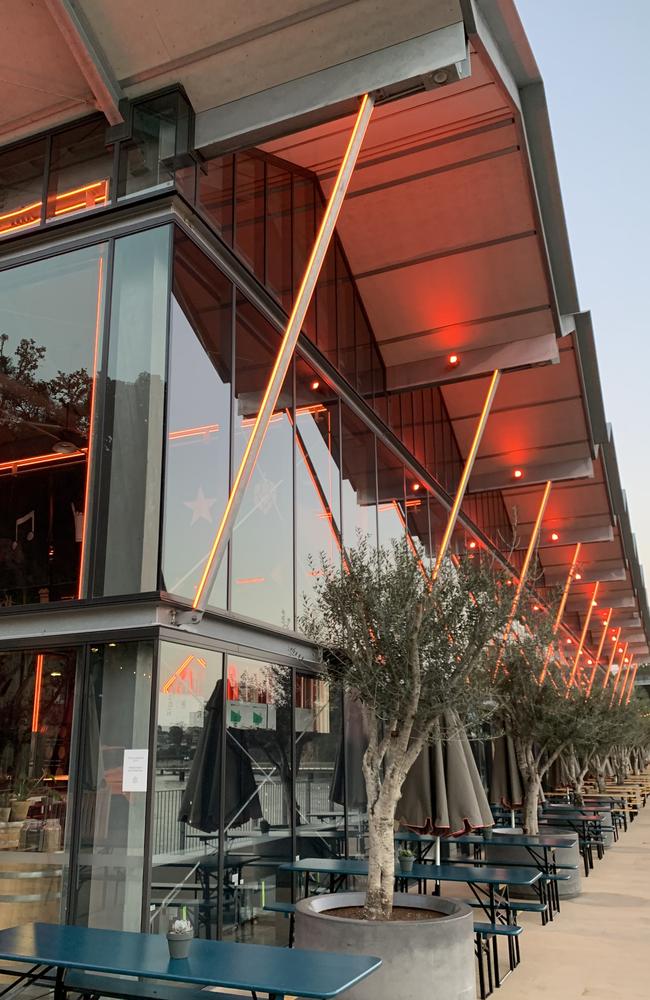
CRAFT BEER FLOWS
The consumption of small-batch, locally made brews has risen over COVID, according to 17,000 drinkers who undertook the Australian Craft Beer Survey for sales site beercartel.com. The respondents reported they bought less mainstream beer, buying 34 per cent more craft brews from their city or state. Certainly openings continue apace, with former Stone & Wood brewer Jeremy James part of a group that launched Precinct Brewing Co, a new brewery and 100-seat restaurant last week at Miami on the Gold Coast.
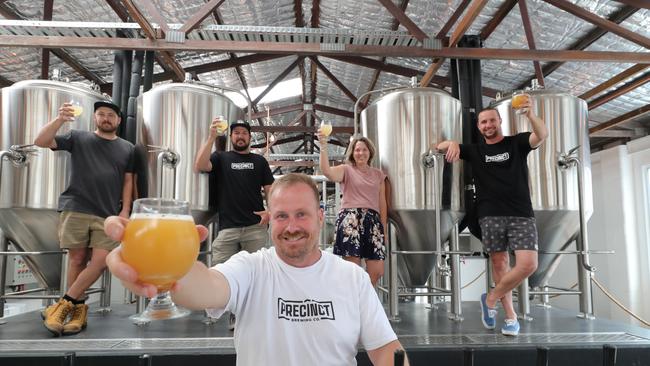
Meanwhile Burleigh Heads-based Black Hops Brewing last month bought East Brisbane’s Semi-Pro Brewing Co as its Brisbane HQ. Nearby at Woolloongabba, new two-level craft-beer brewery, Easy Times Brewing Co, also opened in October, and at Stafford, Happy Valley Brewing Co threw open its doors in August, with restrictions forcing it to immediately pivot to selling ingredients for home brewers. Now visitors can enjoy ales, lagers and sours and a menu including low-and-slow barbecue.
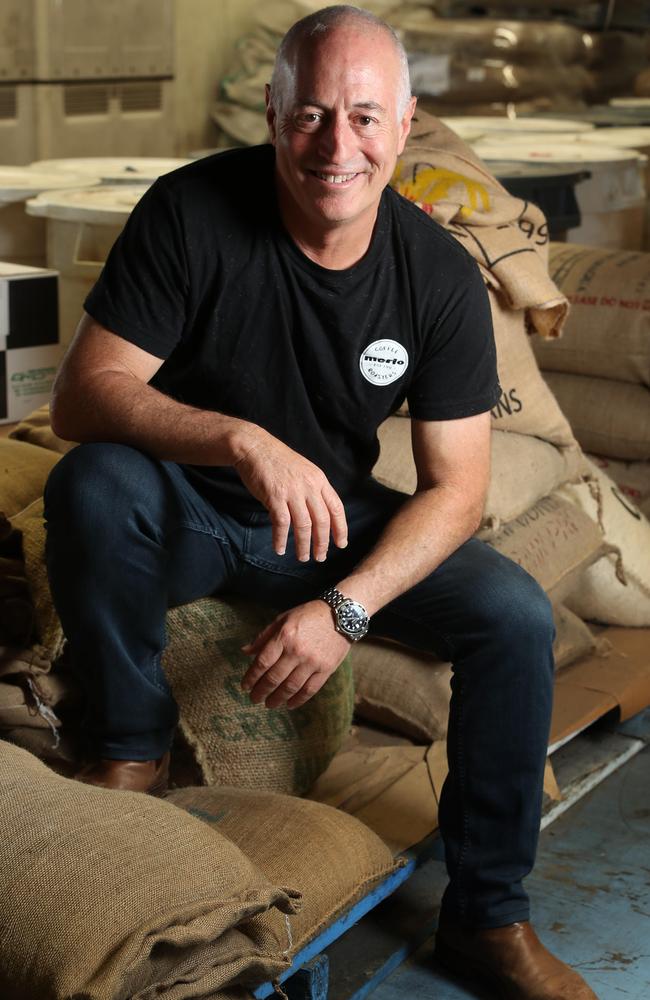
COFFEE IN THE BURBS BOOMS
Online sales of coffee and beans increased by a massive 70 per cent during COVID, according to Merlo Coffee owner Dean Merlo. “Even if customers couldn’t get to a Merlo Coffee shop, they were still very keen to get their coffee,” he says. The company has bought a multimillion-dollar roasting machine that will quadruple the amount of beans processed at its Eagle Farm HQ to meet demand. “Our own stores and our wholesale customers in the areas of Everton Park, New Farm, Paddington, Kedron and Toowong are doing well with so many people working from home,” Merlo says. The company is also looking to expand its 15-cafe chain.
The suburban success story was echoed by other coffee-based businesses such as Eightysix Cafe at Rosalie in the inner-west, with co-owner Quat Vu reporting a 20 to 30 per cent increase in sales when everyone was working from home but a gradual return to more normal operations as customers began to go back to the workplace.
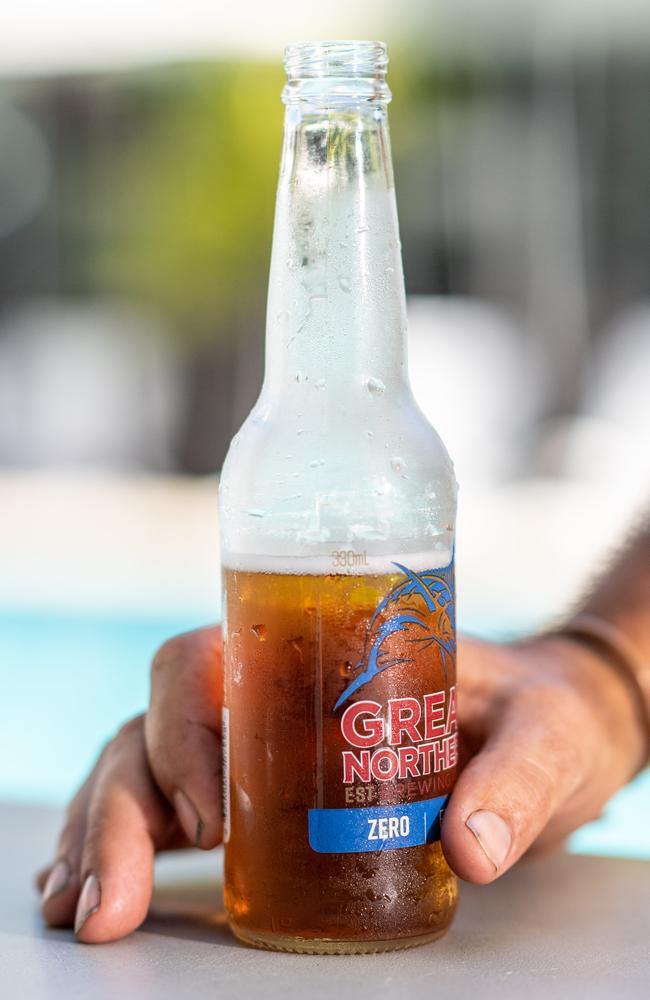
ALCOHOL-FREE TIPPLES MAKE SPLASH
The non-alcoholic beer category has doubled in Australia over the past year, according to CUB, which began marketing a no-alcohol version of its best-selling Great Northern in September. The Gold Coast’s Sobah also makes a range of non-alcoholic brews, while Stone & Wood introduced East Point (2.7 per cent) in October.
Around town, mocktails are now a must on drinks menus with, for example, the list at Donna Chang in the CBD including the Virgin Bubble Colada, with pineapple, lime, agave, coconut cream and pearls; and Yoko Dining at Howard Smith Wharves mixing a tropical highball, a no-booze iced tea and a “good happy” kombucha.
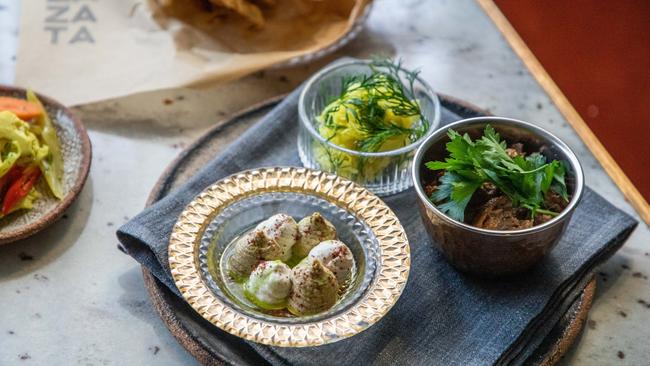
VEG SPROUTS
Valley restaurant Za Za Ta, in the Ovolo Hotel, turned heads when it re-emerged from a corona hiatus with a 100 per cent vegetarian menu, but with veganism a growing trend, most restaurants now offer several plant-based alternatives.
Detour in Woolloongabba has been particularly adept in this area but others are making a play, including Agnes, with dishes such as wood-fired cabbage with rye koji butter sauce, cured egg yolk or charred carrots with smoked labne and mandarin kosho. Fine diner Signature at Emporium offers plant alternatives for each course, including pumpkin cannelloni and even tofu “cheesecake” for the cheese course.
DRIVE-THROUGH SAVED BUSINESS
In January this year, Logan-based twin sisters Amber and Cynamon Norris knew something was coming.
Call it twin intuition, call it simple preparedness or business savvy, but the pair realised their cafe, St Coco in Daisy Hill, needed to change and needed to change fast.
After spending hours online researching the effects COVID-19 was having on the rest of the world, with lockdowns forcing most hospitality venues to shut with limited warning, the duo identified a pattern, noticing food operations with drive-throughs were still open and doing well.
So as most of the Australian hospitality industry went about its daily business, the ladies leapt into action. They created a drive-through for their humble shopping centre eatery, where customers could order online and simply swing through and collect it.
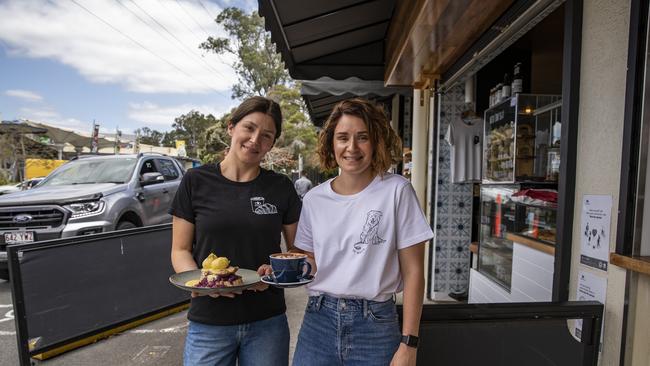
When the pandemic struck and Queensland restaurants were dramatically forced to shut on March 23, the sisters were ready.
“It was basically born through forward thinking,” Amber recalls. “It was research we did, co-ordination with the landlord and innovative thinking.”
While St Coco’s dining room was unable to operate, their drive-through – offering a full all-day breakfast, lunch and drinks menu – was pumping with many new customers who are now regulars.
“There’s people who come for the drive-through on their way to work, pre- and post-school pick-up with the kids in the car and a lot of people with disabilities as well,” Amber says.
“I think it was about the ease for people and they felt safe.”
They also added a retail element to their offering: alcohol paired with food, bags of coffee, deli items, take-home packs, picnic hampers and more.
Amber says the decision to diversify and pivot saved their cafe but, more impressively, helped it grow.
The business has hired an extra three staff, while watching their profits soar.
“Through the January to March quarter we were 6 per cent up from last year, then from March to June we were 16 per cent and then June to September we were 20 per cent up. So we’ve actually managed to grow our income from last year,” Amber says.
The drive-through now makes up for half of the business’s sales, as social distancing rules keep their dine-in operation at 50 per cent capacity.
“It’s here to stay for the moment.
“It makes up a huge part of our income, it keeps staff employed, it’s another safety element and if there’s another outbreak we can just switch to this straight away … we’re already set up to go,” Amber says.


